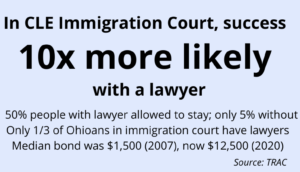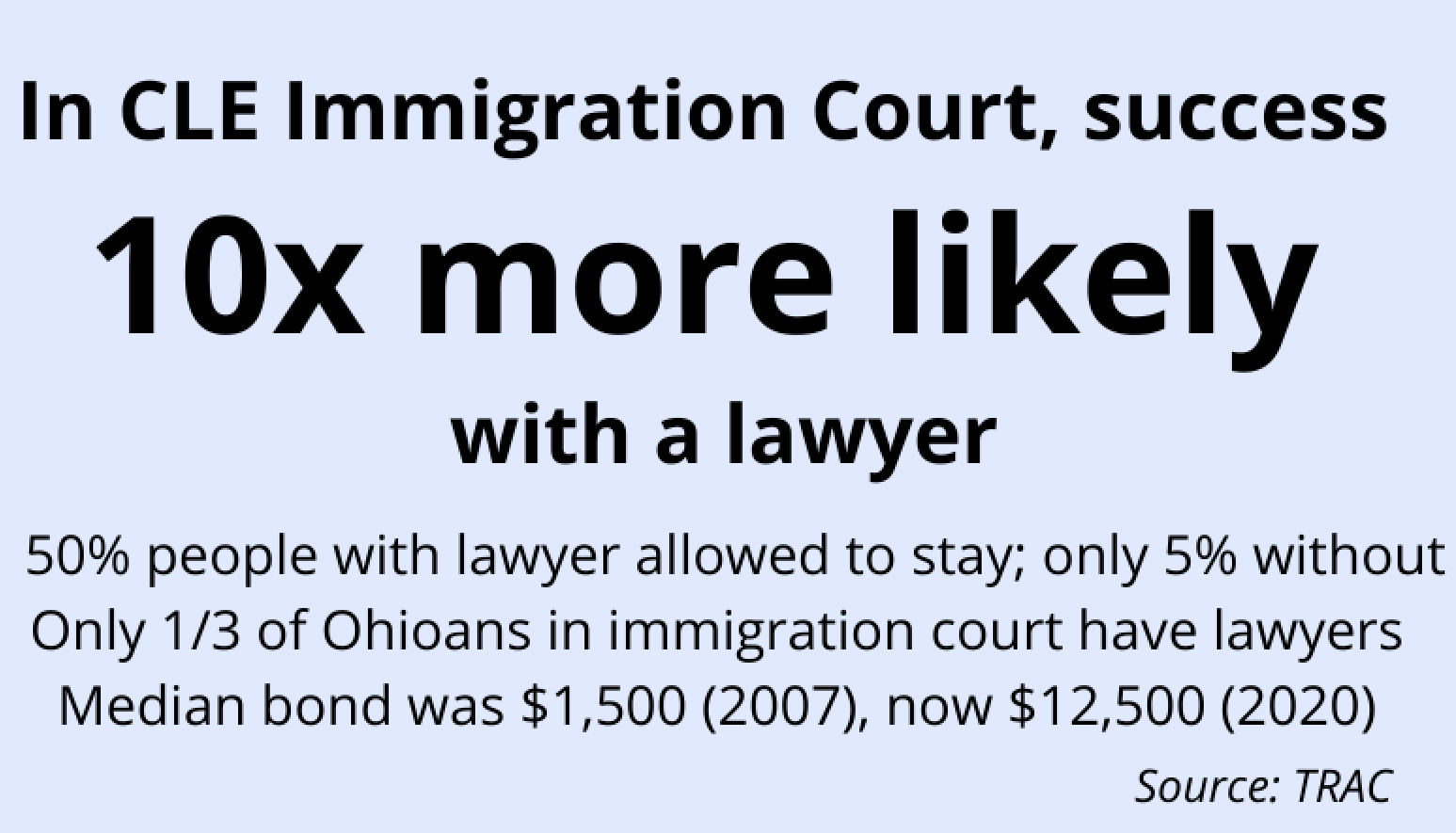Watch this webinar sponsored by the Mauritanian Network for Human Rights in US about the struggles Mauritanian asylum-seekers face in Immigration Court, detention, and post-deportation from the 1990s to today. In this video, Columbus City Council Member Shayla D. Favor gave an update on the renewal of the Columbus Families Together Fund for 2021-2022, and announced that proposals for immigrant legal representation grants will be accepted starting this week.
The discussion featured Houleye Thiam of Mauritanian Network for Human Rights, lawyers Rebecca Stewart (formerly Human Rights First) and Sasha Novis (Al Otro Lado), and Lynn Tramonte with the Ohio Immigrant Alliance. Eugenio Mollo of Advocates for Basic Legal Equality (ABLE) answered questions about representation of Black Mauritanians with long-term cases.
Most compelling were video and audio recordings from people who had been through the asylum process with and without lawyers. Their stories made it clear that not only does the United States need universal representation in Immigration Court (“public defenders for immigrants,” as Houleye put it), but the Biden administration should immediately designate Mauritania for Temporary Protected States (TPS) or Deferred Enforced Departure (DED); re-create the U.S. Immigration Court system to remove the systemic racism at its core; and allow deported people to return home to the United States.
Listen To Their Stories
Mamadou Diop and Oumar Gonel Toure are recently-arrived asylum seekers from Mauritania who had lawyers, and were able to obtain freedom while still fighting their immigration cases. Their words were captured and translated by the Mauritanian Network for Human Rights in US.
Below are audio testimonies from Black Mauritanians who sought asylum decades ago. They were deported in the Trump administration’s crackdown, despite having built good lives and strong families in the United States. Many were forced to leave behind wives and children in the U.S., spent months in immigration jail; shackled and treated worse than animals by Immigration and Customs Enforcement (ICE); and then arrested and harmed by the Mauritanian government upon deportation. Their stories may be hard to listen to, but they want to be heard and they want to #ReuniteUS.
Listen to these testimonies and remember, these are real people from Ohio, who were treated sub-humanly by the U.S. and Mauritanian governments and still dream of living free in the United States.
Learn About Mauritania
A wave of refugees from Mauritania came to the US and Europe in the 1990s/2000s and another wave is coming now, due to the Arab-origin government’s attempted bleaching of the country’s population. Violence, expulsion, slavery, unlawful/prolonged detention without charge and torture, denaturalization, crackdowns on freedom of speech/protest, and land grabbing/stealing natural resources are all tactics used to push Black Mauritanians out of the country. Read more about the causes here and here.
Learn How the U.S. Asylum System Fails Black Mauritanians
As with so many others, when Black Mauritanians seek asylum in the U.S., the outcomes of their cases hinge upon their ability to obtain competent legal counsel and navigate a system based on white supremacist standards of “credibility,” authenticity, and exhibition of trauma.

Take Action In Support Of Our Mauritanian Brothers And Sisters
In addition to asylum reform and universal representation, our demand is for the Biden administration to bring them back (#ReuniteUS) and grant TPS/DED for those currently in the country. On the TPS front, several groups are hosting a Day of Action today; here is the toolkit. Sign this petition in support of TPS for Mauritania and this one demanding #ReuniteUS.

